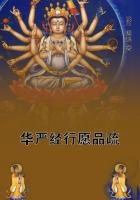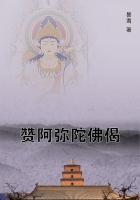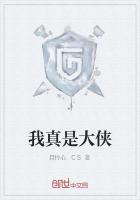But the Senora was not sensible of the reward and comfort; and she did feel most acutely the cruel wound she had given her mother love. Neither prayers nor penance availed her. She wanted to see Jack. She wanted to kiss him a hundred times, and bless him with every kiss. And it did not help her to be told that these longings were the suggestions of the Evil One, and not to be listened to.
The black-robed monk, gliding about his house with downcast eyes and folded hands, had never seemed to Robert Worth so objectionable. He knew that he kept the breach open between himself and his wife--that he thought it a point of religious duty to do so. He knew that he was gradually isolating the wretched woman from her husband and children, and that the continual repetition of prayers and penances did not give her any adequate comfort for the wrong she was doing her affections.
The city was also in a condition of the greatest excitement.
The soldiers in the Alamo were under arms. Their officers had evidently received important advices from Mexico. General Cos, the brother-in-law of Santa Anna, was now in command, and it was said immense reinforcements were hourly looked for.
The drifting American population had entirely vanished, but its palpable absence inspired the most thoughtful of the people with fear instead of security.
Nor were the military by any means sure of the loyalty of the city. It was well known that a large proportion of the best citizens hated the despotism of Santa Anna; and that if the Americans attacked San Antonio, they would receive active sympathy. Party feeling was no longer controllable. Men suspected each other. Duels were of constant occurrence, and families were torn to pieces; for the monks supported Santa Anna with all their influence, and there were few women who dared to disobey them.
Into the midst of this turbulent, touchy community, there fell one morning a word or two which set it on fire. Doctor Worth was talking on the Plaza with Senor Lopez Navarro. A Mexican soldier, with his yellow cloak streaming out behind him, galloped madly towards the Alamo and left the news there. It spread like wildfire. "There had been a fight at Gonzales, and the Americans had kept their arms. They had also put the Mexicans to flight."
"And more," added a young Mexican coming up to the group of which Robert Worth was one, "Stephen Austin has escaped, and he arrived at Gonzales at the very moment of victory. And more yet: Americans are pouring into Gonzales from every quarter."
An officer tapped Doctor Worth on the shoulder. "Senor Doctor, your arms. General Cos hopes, in the present extremity, you will set an example of obedience."
"I will not give up my arms. In the present extremity my arms are the greatest need I have."
"Then Senor,--it is a great affliction to me--I must arrest you."
He was led away, amid the audible murmurs of the men who filled the streets. There needed but some one to have said the word, and they would have taken him forcibly from the military. A great crowd followed him to the gates of the Alamo. For there was scarcely a family in San Antonio of which this good doctor was not an adopted member. The arrest of their favorite confessor would hardly have enraged them more.
Fray Ignatius brought the news to the Senora. Even he was affected by it. Never before had Antonia seen him walk except with thoughtful and deliberate steps. She wondered at his appearance; at its suppressed hurry; at a something in it which struck her as suppressed satisfaction.
And the priest was in his heart satisfied; though he was consciously telling himself that "he was sorry for the Senora, and that he would have been glad if the sins of her husband could have been set against the works of supererogation which the saints of his own convent had amassed."
"But he is an infidel; he believes not in the saints," he muttered; "then how could they avail him!"
Antonia met him at the door. He said an Ave Maria as he crossed the threshold, and gave her his hand to kiss. She looked wonderingly in his face, for unless it was a special visit, he never called so near the Angelus. Still, it is difficult to throw off a habit of obedience formed in early youth; and she did not feel as if she could break through the chill atmosphere of the man and ask: "For what reason have you come, father?"
A long, shrill shriek from the Senora was the first answer to the fearful question in her heart. In a few moments she was at her mother's door. Rachela knelt outside it, telling her rosary. She stolidly kept her place, and a certain instinct for a moment prevented Antonia interrupting her. But the passionate words of her mother, blending with the low, measured tones of the priest, were something far more positive.
"Let me pass you, Rachela. What is the matter with my mother?"
The woman was absorbed in her supplications, and Antonia opened the door. Isabel followed her. They found themselves in the the{sic} presence of an angry sorrow that appalled them. The Senora had torn her lace mantilla into shreds, and they were scattered over the room as she had flung them from her hands in her frantic walk about it. The large shell comb that confined her hair was trodden to pieces, and its long coils had fallen about her face and shoulders. Her bracelets, her chain of gold, her brooch and rings were scattered on the floor, and she was standing in the centre of it, like an enraged creature; tearing her handkerchief into strips, as an emphasis to her passionate denunciations.
"It serves him right! JESUS! MARIA! JOSEPH! It serves him right! He must carry arms! HE, TOO! when it was forbidden! I am glad he is arrested! Oh, Roberto! Roberto!"
"Patience, my daughter! This is the hand of God. What can you do but submit?"
"What is it, mi madre?" and Isabel put her arms around her mother with the words mi madre. "Tell Isabel your sorrow."
"Your father is arrested--taken to the Alamo--he will be sent to the mines. I told him so! I told him so! He would not listen to me! How wicked he has been!"













